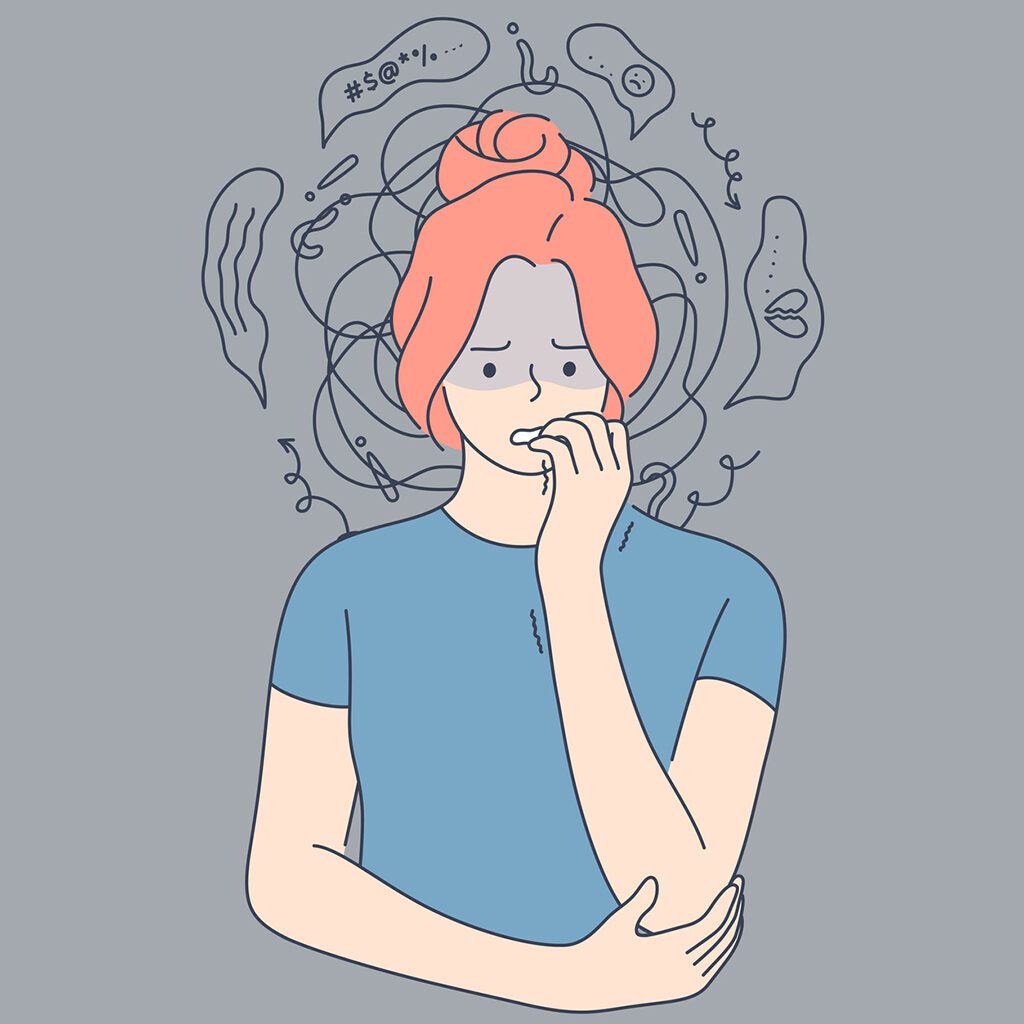Why You Do It & How to Quit
If you are someone who bites their nails, stopping may be easier said than done. For many adults, chronic nail biting – also known as onychophagia – starts during childhood (typically ages 4-6) and is a bad habit that they never grow out of.
Nail biting is considered the most common stress-relieving habit and is akin to sucking your thumb, picking your nose, grinding your teeth, or twisting your hair.
Biting your nails can be a sign of emotional or mental stress, and the habit tends to manifest itself in people who are anxious, nervous, or feeling down. Others bite their nails out of boredom or loneliness, when they’re hungry, or when they’re feeling insecure. Studies show that children are more likely to bite their nails if their parents were nail biters, even if the parents stopped the habit before their child was born. While evidence isn’t conclusive, this signals that genetics could play a factor.
Regardless of why you bite, there are several health risks associated with this seemingly harmless behavior. Biting your nails can allow the nail to grow in abnormally. Aside from an irregular appearance, this behavior can also damage the tissue around the nail, which affects how your nails grow, and it can also result in soreness and infections in and around your nails.

Risks aren’t limited to your physical nails, however. Biting your nails can chip, crack, or break your teeth, and over time, nail biting can even cause jaw problems. Hands are a breeding ground for germs, and those who bite their nails are at an increased risk of getting sick.
The good news? With a little time and effort, it’s possible to ditch your nail-biting habit for good. These eight strategies can help:
- Keep your nails short. If there isn’t enough nail to grab with your teeth, it likely won’t feel as satisfying to bite your nails.
- Coat your nails in a bad-tasting lacquer. Bitter polishes can be purchased from a variety of retailers and can be applied to natural or manicured nails.
- Get a manicure. Spending money on a salon treatment may be all it takes to stop nail biting. In addition, several treatments leave your nails thicker or harder, making it physically more difficult to bite your nails.
- Cover your nails. You can’t bite your nails if you can’t get to them. A pair of gloves will do the trick, and you can also purchase stickers that cover your nails.
- Identify your trigger. Pay attention to how you feel when you bite your nails. If you can identify a specific emotion that results in the behavior, find an alternate way to cope when those feelings bubble up.
- Keep your hands busy. Try fiddling with a stress ball, worry stone, pen, or any other item to keep your hands busy and out
of your mouth. - Keep your mouth busy. If the root of your nail-biting tendency is related to an oral fixation, try chewing gum when you get the urge to bite your nails.
- Take it one step at a time. If quitting all at once proves difficult, focus on one finger at a time. Choose a finger and try to not bite the corresponding nail for one week. Once successful, add a second finger to the mix, and repeat until you’ve kicked the habit. HS

